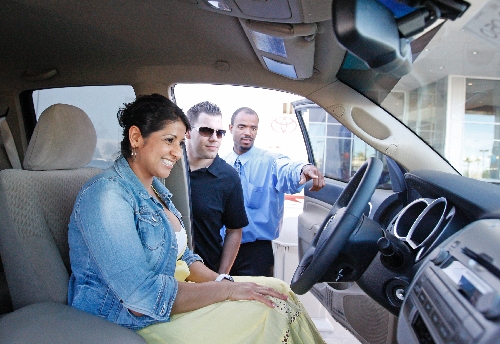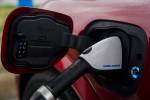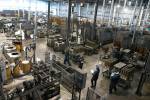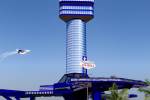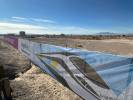Las Vegas economy perks up a bit, taxable sales figures show
OK, you can go ahead and breathe that sigh of relief.
Sort of.
Local and national economic indicators shone brightly Wednesday, with several reports heralding improving business conditions. But the hard times aren't completely over, local observers said, and it could be years before the Silver State and Las Vegas return to their pre-recession economic performance.
First, the good news: Nevada's taxable sales, which measure the dollar value of tangible goods sold through the state's merchants, jumped 4.3 percent, to
$2.9 billion, in February when compared with the same month in 2010. Clark County's taxable sales gained 3.2 percent year over year, coming in at $2.2 billion in the month. It was the eighth-straight month of year-over-year increases in statewide taxable sales, and the fifth consecutive month of growth in Clark County, after two years of declines.
"That we continue to see year-over-year positive growth suggests that the worst is behind us, and a more stabilized operating environment is emerging," said Brian Gordon, a principal in local research firm Applied Analysis.
The Taxation Department's report came as the nation's economic picture brightened too.
The U.S. Commerce Department reported Wednesday that orders for durable goods such as factory equipment increased in March for the third straight month, indicating that businesses intend to keep spending to upgrade their plants.
And the Dow Jones Industrial Average rose 96 points, to close Wednesday at 12,691, after Federal Reserve Chairman Ben Bernanke said in a news conference that the Fed would keep interest rates low for at least three more months. Bernanke, expressing concern about rising inflation, added that the Fed would stop buying government bonds to pump billions of dollars into the economy.
The national trends are important because business vitality across the country will drive improvements in the local economy. As the nation's unemployment rate dropped from 10.1 percent in October 2009 to 8.8 percent in March, local visitor volume grew, rising in 17 of the past 18 months. The trend has affected taxable sales, with retail volume inside local hotels and motels jumping 16.6 percent in February.
But a better sales climate can't materialize without local residents, who contribute roughly 80 percent of Clark County's taxable sales, Gordon said.
Consider dealers of cars and car parts.
Sales in the category surged 17.6 percent statewide and 20.2 percent locally year over year in February, numbers that Gordon called "huge." And anecdotal evidence shows it's cars, rather than car repairs, that are pushing the better results.
Tyler Corder, chief financial officer of Las Vegas-based Findlay Automotive Group, said sales in the company's service and parts division remained flat year over year in the first three months of 2011, while car sales at the company's 24 dealerships jumped more than 20 percent, to 6,171 cars. What's more, consumers splurged on new cars in particular. Purchases of vehicles fresh off of the assembly line grew 30 percent in the first quarter, while used-car sales expanded 10 percent.
Corder credited Findlay's business gains to broader economic improvements and higher consumer confidence, as the city's employment rate dropped to 13.3 percent in March after hitting a record 14.9 percent in December.
"The general economy is better, and I think people have less fear when they see the unemployment rate start to slowly go back down," Corder said. "Before, even if you hadn't lost your job, you were fearful you were going to."
Financing markets have loosened in recent months too, and consumers now qualify more easily for car loans than during the recession's depths in 2009 and early 2010.
Car sales weren't the only spending category gaining ground in February. Sales among clothing retailers were up 11.5 percent statewide and 12.9 percent locally, and food and beverage stores were up 1.8 percent statewide and
4.1 percent locally.
Despite February's improvements, Nevada's retail economy continued to lag its boom-era performance, and experts said it could be years before the freewheeling consumer spending of 2005 and 2006 returns.
Clark County's taxable sales for the month of February peaked at $2.8 billion in 2007, Gordon said. The latest figures fell 23.6 percent below that high.
"Expecting to return to peak consumption levels within the next several years is unrealistic. That level of spending was fueled by significant home-equity extractions, record-setting low unemployment and visitor spending that was off the charts," Gordon said. "Those market dynamics are unlikely to repeat themselves anytime soon. The recovery will likely be slow and measured."
Plus, sales inside restaurants and bars -- Clark County's largest spending category, at 21 percent of February's total -- slipped slightly, dropping 0.8 percent year over year in the month. Construction sales dropped too, falling 12.3 percent statewide as a lack of major new projects kept a lid on recovery in the building sector. With overbuilding of both housing and commercial centers statewide, construction probably will stay suppressed for years to come, Gordon said.
Also, trouble could come from rising gasoline prices, which reached $3.87 for a gallon of regular unleaded in Las Vegas on Wednesday, according to travel club AAA. That's up from $3.71 a month ago and $2.92 a year ago. Higher gasoline costs eat away at discretionary dollars for travel, clothes and meals out.
Steve Brown, director of the Center for Business and Economic Research at the University of Nevada, Las Vegas, said spending and visitor volumes have held up well amid increasing fuel costs, and he doesn't expect gasoline prices to curb economic gains seriously in April and beyond.
"I still think sales will be up, but maybe they're just not going to be up to supersonic heights," said Brown, a former director of energy economics for the Federal Reserve Bank of Dallas. "The U.S. economy is continuing to recover, and even though gasoline is taking a bite out of people's pockets, personal income is on the rise, and people are tired of sitting at home."
Corder said it would be "interesting to see what happens" to car sales if gasoline climbs to $5 or $6 per gallon.
He also is watching another big threat to car sales. The earthquake, tsunami and nuclear disaster that hit Japan in March already have constrained inventory of some imports, and the car shortage could worsen through the summer. Some consumers instead will buy American cars, while others in the market for a specific Japanese nameplate -- say, the Toyota Prius -- will wait out the shortfall, he said.
A noticeable falloff in car purchases could result in June and July and affect Nevada's overall taxable sales, Corder said.
But Corder said he's still optimistic about Findlay's prospects in coming months. Sales remain below pre-recession levels by 10 percent to 15 percent, but that is better than the 40 percent plummet they posted at the recession's nadir. Like many area businesses, Findlay operates more efficiently today.
Said Corder: "We feel really good. The recession forced us to evaluate the expense side, so we're a leaner operation than we were a couple of years ago. We can be successful without quite hitting the volume numbers of a few years ago."
Forecasts call for nationwide car sales to return to their pre-recession levels in 2013 or 2014. Nevada should lag that recovery by a year or so, Corder said.
Contact reporter Jennifer Robison at jrobison@reviewjournal.com or 702-380-4512. The Associated Press and Bloomberg News contributed to this report.




